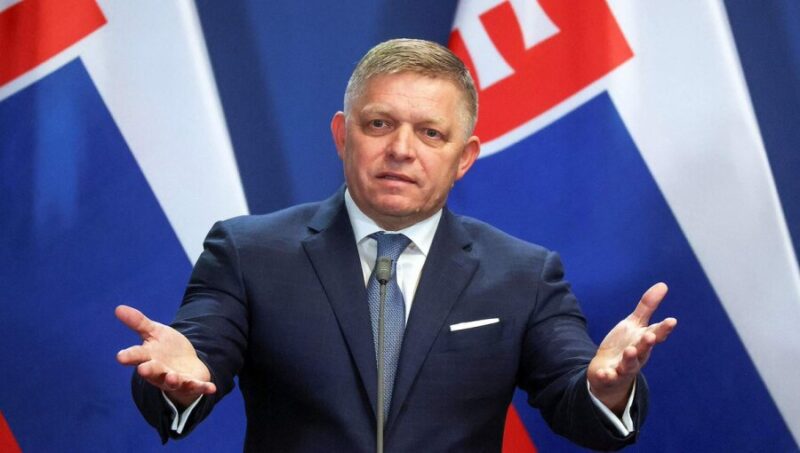Slovakia’s political crisis, which has put Prime Minister Robert Fico’s fragile government at risk, remains unresolved, despite his promise to fix it by February 17. Fico, who came to power on a platform of Euroscepticism, anti-immigration, anti-war, and pro-workers’ rights, has been struggling to maintain a majority in parliament.
The crisis was sparked by internal conflicts between Fico’s two junior coalition partners: the social democratic Hlas (Voice) and the right-wing nationalist Slovak National Party (SNS). These squabbles led to several MPs leaving the parties, reducing the government’s strength to just 72 seats in the 150-seat parliament.
Efforts to resolve the deadlock began on Monday and continued into Tuesday, with talks aiming to avoid snap elections. The government has until the end of March, when parliament’s next session begins, to find a solution.
SNS leader Andrej Danko has expressed full support for Fico, as his party is struggling in the polls and fears missing the threshold to enter parliament. Meanwhile, three MPs who left SNS are demanding control of a ministry in exchange for their backing.
Matúš Šutaj Eštok, leader of Hlas, has promised his party’s full effort to keep the government intact. Fico, meanwhile, has warned that if the internal disputes aren’t resolved, he will propose a government reshuffle to President Peter Pellegrini, possibly offering ministries to the rebel factions within Hlas and SNS.
Opposition protests against the government, accusing it of veering away from the European Union and aligning more with Moscow, have been ongoing. Fico has dismissed these charges, stating he seeks a pragmatic relationship with all global powers. Despite these tensions, a recent no-confidence vote failed, with the opposition unable to gather enough support.
Public opinion appears relatively stable, with Fico’s left-wing nationalist Smer party and the opposition liberal Progressive Slovakia party polling neck-and-neck at 22%. Hlas follows with 12%, while potential allies Republika and the Christian Democratic Movement are at 8%.




